Fritextsökning
Artiklar per år
Innehållstyper
-

Settlement of cancer allegations against blockbuster drug
French pharmaceutical company Sanofi has reached a principal agreement in the US on around 4,000 of the cases in which its now withdrawn blockbuster heartburn drug Zantac allegedly had caused cancer.
-
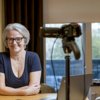
Så får du ihop ett CV som imponerar på life science-rekryteraren
På dagens arbetsmarknad är det viktigt att alltid ha ett uppdaterat CV och att skriva ett är inte helt enkelt. Men så länge man har ett konkret mål med sin karriär kan man med enkla medel slänga ihop en resumé, menar karriärcoachen Tina Persson.
-

Marie Gårdmark: ”Interchangeable biological medicines – soon in a pharmacy near you?”
”Generic competition is an effective way to push down drug prices, but it has not worked equally well for biosimilars. Biosimilars require more time to gain market share compared to generics, and new biosimilars do not always lead to lower prices” writes Marie Gårdmark in a column.
-

To build trust, one must be able to say “I don’t know” – whether human or AI
Will AI strengthen or break down trust? It depends on whether we can understand and accept its limitations, and our own, writes Sarah Lidé in a column.
-

Failed to read the fine print – lost his life’s work
A celebrated CEO and co-founder of a pioneering lab company one moment – the next, fired, kicked out and written out of the company’s history. This is the story of a Swedish entrepreneur who was going to raise US venture capital to strengthen his company but lost his life’s work instead.
-

Pandemifonden: Tillsätt en ambassadör för virusforskning
Regeringens life science-kontor bör ha en ambassadör för virusforskning. Det är ett förslag som framförs av företrädare för Virus- och pandemifonden.
-
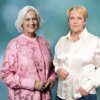
Major investment in women’s health – for a more equal healthcare system
”The regional differences need to decrease and the long-term supply of midwives and other professions needs to be secured,” write Acko Ankarberg Johansson and Désirée Pethrus (both Christian Democrats), in an opinion article.
-

Julefrid ger läsetid – 10 artikeltips från redaktionen
När julstöket är avklarat, magen fått sitt och släkten avlägsnat sig lägger sig den stora friden – och kanske vaknar läslusten?
-

Ny utbildning sätter AI-verktygen i forskarnas händer
Runt om i landet startar utbildningar om artificiell intelligens, några med särskild inriktning mot medicinsk forskning. Life Science Sweden har talat med Kristian Samuelsson, en av initiativtagarna till en ny kurs vid Sahlgrenska akademin.
-

Chat GPT gav fel svar och hittade på referenser
Enligt en ny amerikansk studie kan Chat GPT vara farlig att vända sig till med medicinska frågor. Men att den hajpade chattboten hittar på egna fakta förvånar inte läkaren och AI-profilen Max Gordon.
-

A vaccine the world is waiting for: “It can change the lives of many”
A Solna laboratory is developing a vaccine that could save the lives of countless children in low- and middle-income countries. “Working on something that can make a difference for many people is important to me,” says Christine Hägglund, Laboratory Manager.
-
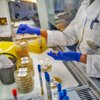
Ett vaccin som världen väntar på: ”Kan ändra livet för många”
I ett laboratorium i Solna utvecklas ett vaccin som, om allt går i lås, kan rädda otaliga barns liv i låg- och medelinkomstländer. ”Det är viktigt för mig att jobba med något som kan göra skillnad för många”, säger labbchefen Christine Hägglund.
-

Marie Gårdmark: Går vi mot ökad centralisering med nya förordningen?
Behöver en maktförskjutning vara en dålig sak? Marie Gårdmark funderar i en krönika över relationen mellan EMA och de nationella myndigheterna.
-

Study: Vaccination linked to lower risk of post-COVID
The risk of developing post-COVID after a COVID infection was reduced in vaccinated people, according to a new study from the University of Gothenburg.
-

Eli Lilly to build a USD 2.5-billion plant in Germany
US-based Eli Lilly is planning a huge investment of USD 2.5 billion, equivalent to around SEK 26.5 billion, in a new production facility in Alzey, Germany.
-

Stanford-program öppnar dörrar för Neola i USA
Lundabolaget Neola Medical har valts ut till att få stöd av Stanford Universitys program för teknisk innovation inom barn- och mödravård.
-

The physician at the tech giant: “Observations in the emergency room made my mind up”
When Nasim Farrokhnia was in third grade at school in Tehran, the capital of Iran, her father gave her a book about Marie Curie, which soon became her favourite book. Perhaps her interest in science was born there and then, as science and new technology have since been a constant feature of her working life. Today, she is a Healthcare Manager in Microsoft’s Western Europe team.
-

Study names with an attitude – more important than you might think
Ironman, T-rex, Star-Trek. Popcorn, Proper, Scout. Nope, these are neither fantasy films nor dog names. They’re the names of ongoing cancer studies in Sweden.
-

Samuel Lagercrantz: A special kind of hellishness afflicts post-COVID patients
In addition to the disease itself those suffering from post-COVID have to deal with people who try to label them as hypochondriacs, writes Samuel Lagercrantz in an editorial.
-

Bioarctic granted Japanese patent for Parkinson’s disease candidate
Bioarctic has been granted a Japanese patent for its antibodies targeting Parkinson’s disease.
-
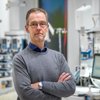
“Unfortunately, we are not strong when it comes to conducting clinical trials”
The number of company-initiated clinical trials conducted in Sweden has been declining in recent years. In mid-March, a government inquiry was presented that aimed to find answers and solutions to this downward trend. One of the proposals was a stable, sustainable and funded model for collaboration.
-
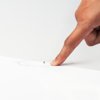
Small robots to deliver pharmaceuticals to the body
Robots that can operate inside the body and a platform that combines ultrasound with AI. These are a couple of the technologies that have qualified for a list that aims to promote sustainable entrepreneurship.
-

CROs in drug development: "We use our expertise to speed up the process
Consultancy firms have become an increasingly important part of drug development. “It’s a trend and a business model that works, and we see no indication that it will change,” says Helena Lüning of the industry organisation ASCRO.
-

Why the world renown researcher Marc Tessier-Lavigne resigns as Stanford´s president
In mid-summer, neuroscientist Marc Tessier-Lavigne announced his resignation as President of Stanford following allegations of manipulated study data. According to the reporter Theo Baker, who first reported the story, Tessier-Lavigne “rewarded the winners and punished the losers”. Here is the background of the story which has shaken the American scientific community over the summer.